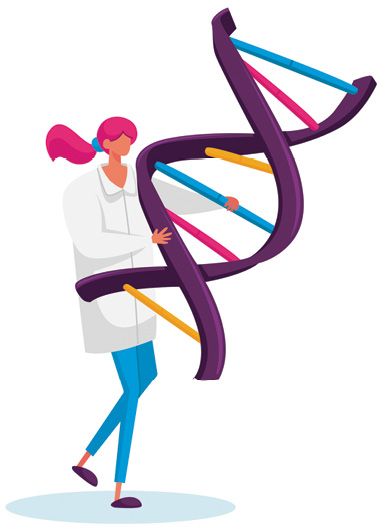Q: It seems like everybody in my family has high cholesterol. I try to eat well and exercise, but my numbers are still high. Could it be in my genes?
A: José M. Ordovás, PhD, senior scientist and leader of the Nutrition and Genomics team at the Jean Mayer USDA Human Nutrition Research Center on Aging and a professor of nutrition and genetics, answers: “Your genes play a significant role in determining whether you will have high LDL cholesterol. Early studies with twins revealed that, on average, genetic factors accounted for about 50% of the variability in blood cholesterol levels, the remainder being due to lifestyle factors such as diet.
“Interestingly, the most impactful story about the genetics of cholesterol comes from an observation that did not start in cardiology or internal medicine clinics but rather in the field of dermatology. Some patients had orangish deposits on the skin that, when analyzed, turned out to be made primarily of cholesterol. This initial observation led to the discovery of Familial Hypercholesterolemia (FH), a disease affecting about one in 300 individuals. FH is associated with very high levels of circulating LDL cholesterol and premature cardiovascular disease. The study of this disease helped us understand how cholesterol is metabolized in the body, which provided the basis for the development of statins, one of the most consumed drugs globally, aimed at decreasing LDL cholesterol levels and cardiovascular risk.
“Hundreds of DNA mutations associated with FH and milder forms of hypercholesterolemia (high LDL cholesterol) have already been identified.
In the future, we will be able to determine the genetic risk of high LDL cholesterol in an individual (even before they manifest signs) and provide dietary recommendations and address other environmental factors to help prevent high LDL cholesterol levels, even in the presence of a genetic predisposition.”
Sara C. Folta, PhD, is an associate professor at the Friedman School of Nutrition Science and Policy, where she is also the associate dean for Diversity and Inclusion. As part of the program in Nutrition Interventions, Communication, and Behavior Change, she teaches a course on behavioral theory.
























